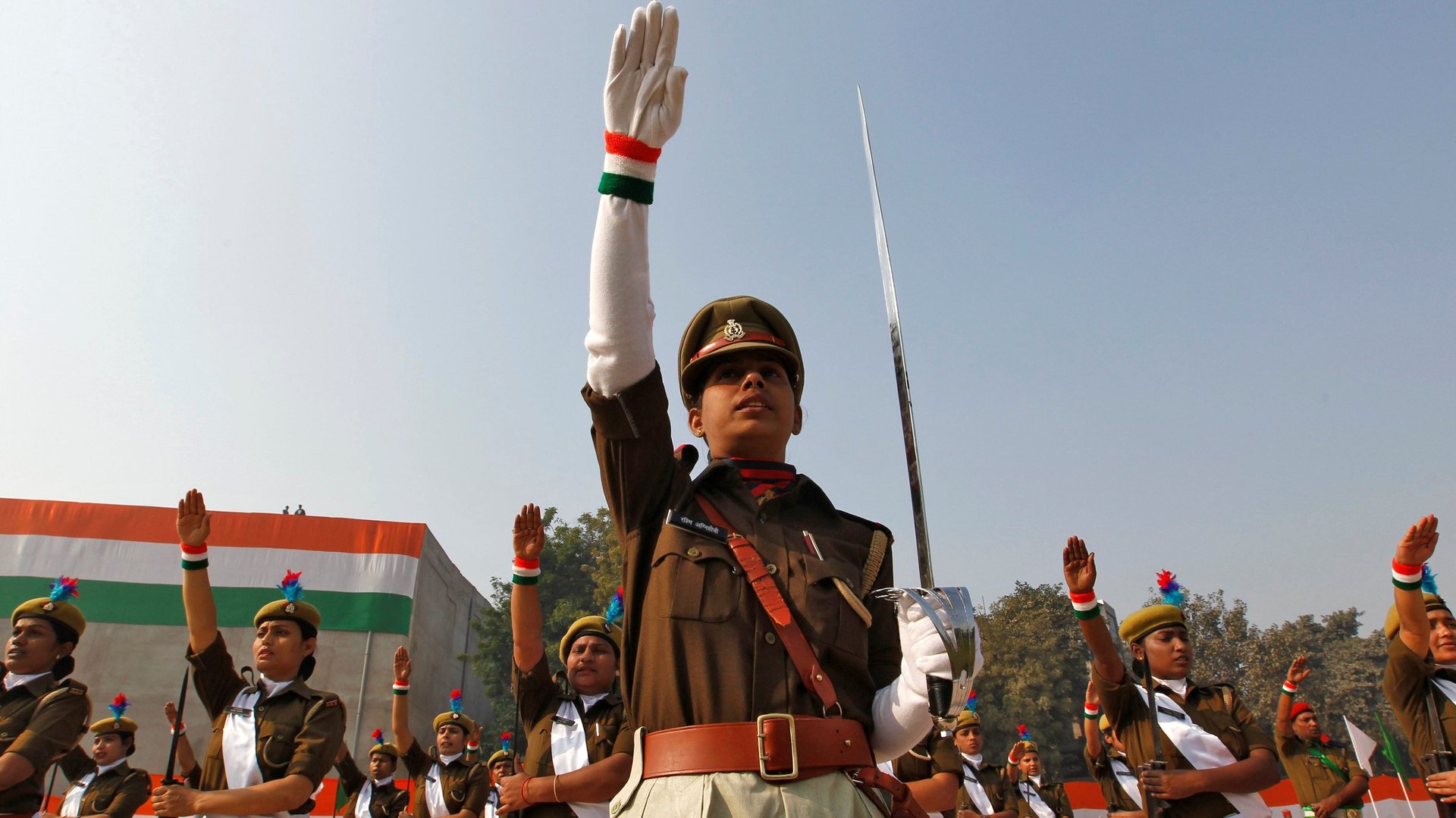Some Indian states will take over 200 years to make a third of their police forces female
India’s justice system has a conspicuous glass ceiling.


India’s justice system has a conspicuous glass ceiling.
Women account for a mere 7% of its police force and only 28% of the lower judiciary, according to the India Justice Report 2019, the first-ever state-wise ranking of the police, judiciary, prison, and legal aid systems.
The report, created by a collective of Indian non-profit institutions and supported by the Tata Trusts, found that female representation across the four pillars of justice was abysmal and nowhere near the 33% female reservation that India envisions in general.
There are only eight states and union territories (UT) in the country where female representation is over 10% in the police force. Going by precedent, a state like Madhya Pradesh, for instance, would take 294 years to have 33% women among its law-keepers. Western Indian states like Maharashtra and the UT of Daman & Diu, on the other hand, could bridge this gap in about 14 years.
Gendered prison
In India’s prisons, Nagaland had the highest share of female staff at 22.9%. Most other states were well below 10%.
Your ladyship
The number of women India’s 25 high courts is rankling. In states like Chhattisgarh, Uttarakhand, Himachal Pradesh, and Meghalaya, there are no female judges at all. The lower courts, though, performed better on this metric. Meghalaya, for instance, had 73.8% women in this section.
Bihar is the worst on both these parameters with 6.3% and 11.5% female judges in high courts and lower courts, respectively.
“No state has adopted affirmative action for women judges in their high courts,” write the authors of the report, Leah Verghese and Shruthi Naik of DAKSH, and Ameen Jauhar and Dikshya Sanyal of Vidhi, Centre for Legal Policy.
Legal eagles
The only judicial arm where women have promising representation is legal aid. Almost all states had more-than-satisfactory presence of woman paralegal volunteers (PLVs), according to the report.
“The presence of a large number of women panel lawyers and PLVs is essential for reaching out to a constituency that is often under-served and faces socio-cultural barriers when they try to come forward for legal assistance,” wrote authors Nupur from the Centre for Social Justice, and Madhurima Dhanuka from the Commonwealth Human Rights Initiative.